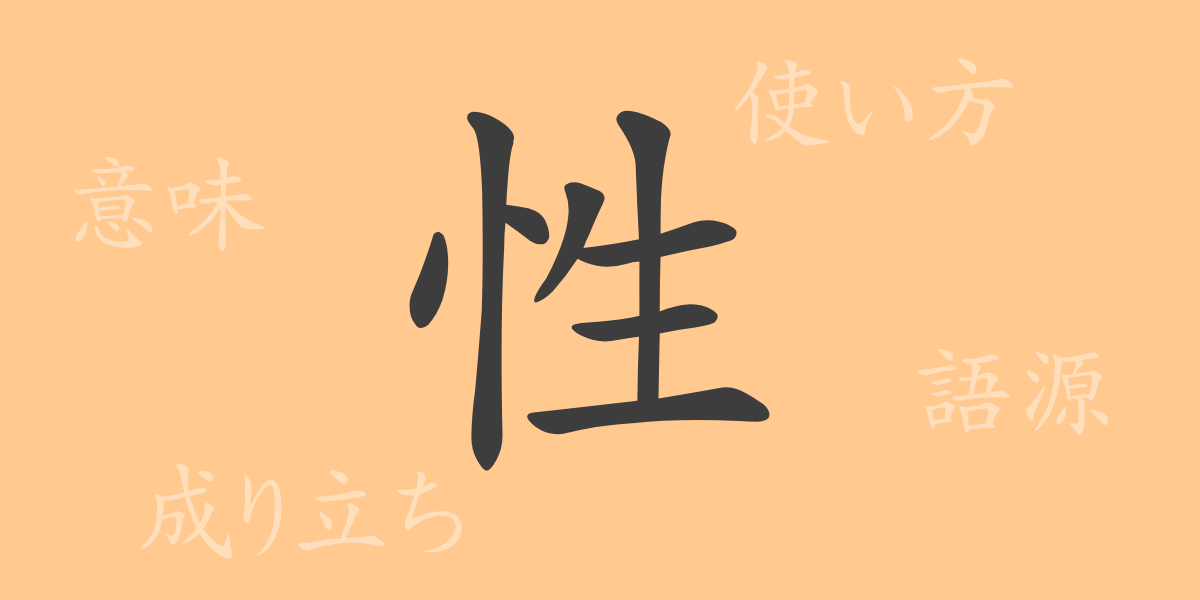Each kanji in Japanese has its own unique history and meaning. The kanji ‘性’ (せい) is especially profound, often used in our daily lives. This article explores the etymology, contemporary usage, and the various expressions and idiomatic phrases related to ‘性’, delving into its diverse aspects.
Origins of 性
The kanji ‘性’ can be traced back to ancient Chinese oracle bone script. It is believed to have evolved from the kanji ‘生’ (せい), which means ‘to be born’. Originally, it denoted the intrinsic characteristics or qualities that people or things naturally possess. Over time, it came to represent human inner qualities and nature.
Meaning and Usage of 性
In modern Japanese, ‘性’ has a broad range of meanings. It typically refers to a person’s inner traits or personality, but it can also indicate biological sex or abstract characteristics and essence. ‘性’ is commonly used as a noun in combination with adjectives or other kanji.
Readings, Stroke Count, and Radical of 性
Let’s examine the pronunciation and structure of the kanji ‘性’.
- Readings: On’yomi is ‘セイ’ (Sei), Kun’yomi is ‘さが’ (saga).
- Stroke Count: ‘性’ consists of 8 strokes.
- Radical: The radical is ‘心’ (heart), which symbolizes emotions and mental activities.
Phrases and Idioms Involving 性
There are numerous idioms and phrases that include the kanji ‘性’, reflecting its extensive implications. Here are some examples:
- 性格 (せいかく): Refers to a person’s personality or tendencies.
- 性質 (せいしつ): The inherent characteristics of a person or thing.
- 性能 (せいのう): Refers to the functions or capabilities of a machine.
- 性差 (せいさ): Differences due to gender.
- 好き好きの性 (すきずきのさが): An idiomatic phrase meaning everyone has their own preferences.
Conclusion on 性
The kanji ‘性’ is a pivotal character that encompasses everything from human inner qualities to biological sex and even the capabilities of machinery. This single character allows us to glimpse the depth of our culture and language. Understanding ‘性’ in various contexts, from everyday conversation to literature and business, is essential for a deeper comprehension of Japanese.

























